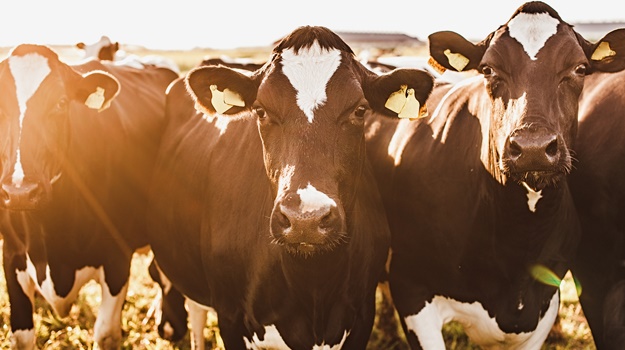
- A new report says the world's 20 biggest meat and dairy firms emit more greenhouse gases than the economies of Germany or Britain.
- Germany's total emissions were just over 900 million tonnes, while France and Britain each emit closer to half that amount.
- An estimated 75 billion animals are slaughtered every year to produce 325 million tons of meat — with the OECD predicting an increase of 40 million tonnes by 2029.
The world's 20 biggest meat and dairy firms are responsible for more greenhouse gas emissions than produced by the economies of Germany or Britain, a report said Tuesday.
The 'Meat Atlas' is an annual digest of scientific and official data on meat production and consumption, compiled by research NGO Heinrich-Boll-Stiftung foundation and Friends of the Earth Europe.
It calculates a hefty 932 million tonnes of CO2-equivalent emissions from major milk and meat companies, with Brazilian multinational JBS responsible for over a quarter of that.
Using the same metric, Germany's total emissions were just over 900 million tonnes, while France and Britain each emit closer to half that amount.
A UN report attributes 14.5% of global greenhouse gas emissions to livestock farming, and Tuesday's report finds demand for meat is on the rise.
It estimates 75 billion animals are slaughtered every year to produce 325 million tons of meat — with the OECD predicting an increase of 40 million tonnes by 2029.
"This is, by far, too much to respect the boundaries of our planet," study co-author Christine Chemnitz said in a news conference.
In addition to livestock emissions, the report highlights the growing environmental impact of related resources such as soybeans used for feed.
Chemnitz said some 1.2 million square kilometres — an area three times the size of Germany — are already dedicated to farming soy, over 90% of which is used to feed livestock.
This growing demand is driving deforestation and threatening biodiversity as land is cleared to make room for crops, the report said.
It is also driving up demand for pesticides.
Top soy exporters Brazil and the US are the biggest importers of pesticides deemed "highly hazardous" by the watchdog Pesticide Action Network, according to the repot.
The "Meat Atlas" estimates that if production continues under current conditions and increases at the predicted rate, it will be impossible to meet the UN's sustainable development goals set for 2030.
The Berlin-based institute also polled young people in Germany and found 70 percent were willing to pay more for meat raised under strict environmental and labour standards.
But Chemnitz says government policy has yet to respond.
"No country on Earth has a strategy to ambitiously reduce meat production or consumption," she said.




 Publications
Publications
 Partners
Partners












